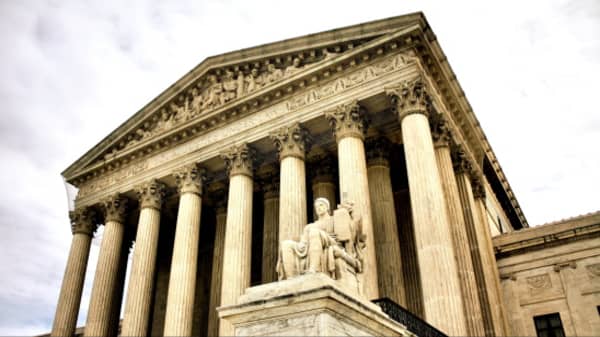But even as states eased restrictions on gambling, the federal ban on sports betting remained in place, thanks to the Professional and Amateur Sports Protection Act, a federal law enacted by Congress in 1992 and signed by President George H. W. Bush.
The bill, championed by Democratic three-term New Jersey Sen. Bill Bradley, who is also a basketball Hall of Famer, and backed by professional sports team owners, allowed sports gambling in Nevada and a handful of other states, but banned it elsewhere. Monday's high court ruling overturned that restriction.
It's difficult to estimate just how big an industry legalized sports gambling could become in the U.S. One study, commissioned by the American Sports Betting Association, found that it could add as much as $26 billion to U.S. gross domestic profit, create as many as 152,000 new jobs, and bring in between $4.8 billion and $5.3 billion in new revenue for the states.
But those numbers depend on a number of assumptions and predictions that are difficult — if not impossible — to make.
For one thing, it's not clear whether legal betting on popular sports would divert money from other forms of legal gambling like lotteries, or increase an overall pot of legal bets by siphoning money from illegal betting.
A lot, of course, depends on how many states decide to permit sports betting. The more widespread and convenient legal sports betting becomes, the bigger the overall pot. But the more states that enter the legal sports betting game, the less money each state will take in.
Some researchers argue that, over the long run, legalizing gambling has been a bad bet for states hoping to generate revenues to help balance their budgets without raising taxes.
While legalized gambling has often brought an initial revenue boost, those benefits have faded over time as more states have competed for a finite pool of gambling dollars, according to a 2016 report from the Rockefeller Institute.
"In the long run, growth in state revenues from gambling activities slows or even reverses and declines, so it's important to take into consideration market competition within the state and among neighboring states," wrote Thomas Gais, the institute's director.





